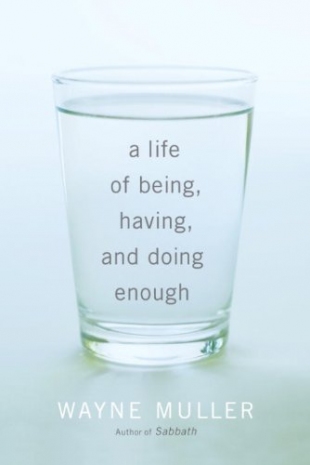"The ways sorrow comes to us are endless, as varied as the myriad shapes of a human soul. Then, there are other things, the ways we look at ourselves and the world, the things we carry: fear, grief, loneliness, weariness, shame, self-loathing, mistrust, anger, rage. Unbearable sadness, depression, the nearly absolute deflation of any real vitality or life-giving spirit.
"And if we choose to remain attentive to such things, to notice — if even for one single day — each time our hearts feel torn, empty, disappointed, sad, broken open, pinched, or aching, we can easily fall prey to a deeply rooted terror, an unquenchable fear that anything, anyone, at any time, could simply be taken away, wrenched from our loving embrace. If we really tasted our bitter grief whenever we felt the loss of anything precious, beautiful, or hopeful, we might well become paralyzed. We might turn to stone, unable to move, speak, act, or do anything at all except weep, melt, grasp our aching hearts for the searing pain of feeling our hearts shred a dozen, a hundred times a day.
"We are not taught to live like this, so awake, so attentive, so purposeful. We are taught instead to move faster, to strive, grasp, hurry, claim, protect, defend, accomplish, accumulate, and then keep count of all the things that still belong to us. That is, until the moment we learn in the most painfully insulting way that nothing, no thing or person or relationship or fortune, will ever belong to us. It is all on loan.
"But rather than face and acknowledge our constant stream of losses, we choose instead the other thing we do when we lose things: We go faster. We speed up our lives, move so much faster, so the thousands of tiny losses dissolve into an unrecognizable blur under the speeding train of our important work. Or, as if a flat stone skipped across a pond, we hope to somehow make it to the other shore without getting wet, without sinking, without descending into the watery depths of inevitable heartache.
" 'There is more to life,' said Gandhi, 'than increasing its speed.' We take refuge in speed, we avoid the searing burning in the heart by chasing swiftly this way and that, we become a moving target, so it is more difficult for those unbearable feelings to find us. Besides, we impress and satisfy others, get more done. But of course we are never quite done. So we refrain from rest, refuse even to pause.
"But here is the rub. Love, kindness, generosity, companionship, joy, delight, happiness — these are all beautiful, precious gifts and blessings that grow in the very same soil from which we harvest sorrow, pain, loss, and heartbreak. The greater our heart's capacity for joy, the more we will learn to truly bear our sorrows.
"Here is the final thing we must know. We carry within us a fierce grace that will not be extinguished, does not break, cannot ever leave us comfortless. It lives in us. This life force, whatever it is that allows a blade of grass to push up, up through concrete to reach for sun and warmth, this lives in us, this is what we are made of. If we trust in this impossibly resilient capacity to bear all we are given, and recalibrate our speed in such a way that we allow ourselves to feel the searing burning loss of something or someone precious, then we can stand passionately and honestly before one another and offer our most deeply impossibly suffering heart's fearless, honest, loving kindness. And it is from this shared kindness, born of our own sorrow and loss, that we find, with and for one another, in shared, loving companionship, some tender budding fragrance of enough."
